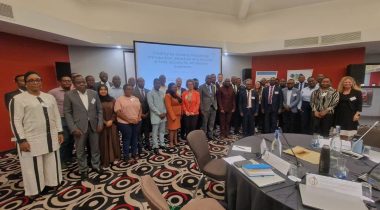
Nick Shaxson ■ Oil and mining contract transparency: is a tipping point approaching?

From Open Oil:
“a push towards universality – all contracts and all concessions in public domain – is only what is due to the public. Who are, after all, the legal owners of sub-soil resources in every country in the world bar one. What management of a company would be taken seriously if they published a partial profit-and-loss, or balance sheets from only some departments?”
We would not disagree. Oil contracts, as with many minerals contracts, have generally been kept secret. Every now and then, one popped into, say, a journalist’s hands, but in general terms they have been kept under wraps, usually for reasons of “commercial confidentiality”.
But transparency is beginning to emerge. As Global Witness notes in a 2014 briefing on the confidentiality of oil contracts,
“Things are changing rapidly. There is now a wide recognition that greater transparency in the extractive sector is key to good resource management and that publishing revenue information would be enhanced by an understanding of the contracts that underpin those revenues. Contract transparency is a crucial next step.
The Extractive Industries Transparency Initiative now “encourages” public disclosure of extractives contracts and licences in its 2013 Standard. The International Monetary Fund and the World Bank also endorse contract transparency as does the Open Government Partnership, a multilateral initiative that aims to secure concrete commitments from governments to promote transparency, empower citizens, fight corruption, and harness new technologies to strengthen governance.
Many countries around the world, including: Afghanistan, Australia, Azerbaijan, Bolivia, Burkina Faso, Democratic Republic of Congo (DRC), Republic of Congo, Ghana, Guinea, Kurdistan, Liberia, Mauritania, Mexico, Niger, Peru, Sierra Leone and Timor-Leste, now publish extractive industry contracts.”
It’s often hard for outsiders and newcomers to understand and use oil contracts, not just because of the complexity of the tax and royalty regimes, profit oil splits, and so on – but also because contracts need to take into account of idiosyncratic things like local political, geological and oil price risk, which makes it hard to compare contracts between countries or even within countries, and the fact that much of the mischief often happens inside the cost component of the arrangement, which is often only superficially touched by the contract terms themselves.
But there is plenty of useful stuff to be discovered in a contract, and as more are published and compared, the expertise will develop, and complementary information will emerge to help inform citizens and others with a legitimate stake in the contract. As the Open Oil blog notes:
“the “zombie transparency” so ably outlined by [Dani Kaufman, director of the Natural Resource Governance Institute] is a very real danger of partial transparency. Datasets sit unused because they can’t be made to yield any insight, and a big part of that is they are too scattered to be connected one to another – and it is above all the “network effect” of converging and meshing different data sets which allow rich insight to emerge.”
Zombie transparency has been defined, by the way, as “opaque, aggregated information”: pretty much the exact opposite of disaggregated country-by-country reporting]
Now Open Oil in December published a fascinating article entitled The concession layer: 12,500 concessions, 2,000 companies, 41 countries. After some preamble, its introductory paragraph goes:
“Today we are publishing an index of most the data we could find publicly available regarding the world’s oil concessions outside the United States. About 12,500 concession blocks in 41 countries, including references to about 8,000 licenses or contracts involving some 2000 companies. It is designed as the sister to the repository published last month, which aims to provide one-click access to every contract that has entered public domain.”
Which is a rather interesting development. And it continues:
“Of course it is only a subset of the total. But how much of a subset? That brings us back to the question: how many oil concession blocks are there in Africa? At this point I have to admit we don’t know – exactly. We have counted 2,855 in the 47 countries we could find any data for.”
Which is a surprisingly large number.
Related articles

2025: The year tax justice became part of the world’s problem-solving infrastructure

Tackling Profit Shifting in the Oil and Gas Sector for a Just Transition
The State of Tax Justice 2025
One-page policy briefs: ABC policy reforms and human rights in the UN tax convention

Bad Medicine: A Clear Prescription = tax transparency

The Financial Secrecy Index, a cherished tool for policy research across the globe

Lessons from Australia: Let the sunshine in!

Strengthening Africa’s tax governance: reflections on the Lusaka country by country reporting workshop




Contracts must be witnessed; today, the witness should be the public. Secret deals are an aberration from common law traditions: http://wp.me/pk5rC-l0. We should reform the law of contract so that a contract binds only to the extent that it is published.